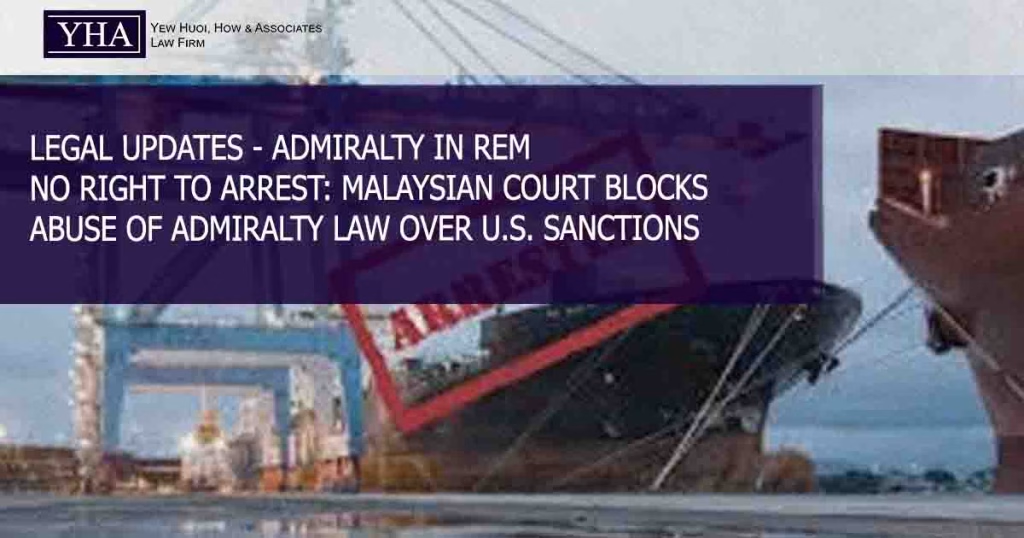1. Summary and Facts
In Unicious Energy Pte Ltd v The Owners of the ‘Alpine Mathilde’ [2023] MLJU 2819, the Plaintiff commenced an admiralty in rem action to arrest the vessel Alpine Mathilde as security for a London arbitration claim, alleging breach of a Voyage Charter Party. The arrest followed an earlier failed attempt by a related entity, Desert Oasis, to claim the same cargo under a sham sale. The Plaintiff had been designated an SDN under U.S. sanctions, rendering the cargo “Blocked Property”.
2. Legal Issues
• Whether the Defendant was a “U.S. Person” under OFAC sanctions and thus prohibited from delivering the cargo.
• Whether the Plaintiff had a valid cause of action.
• Whether the arrest was a proper exercise of admiralty jurisdiction or a wrongful attempt to obtain arbitration security.
3. Court’s Findings
• The Defendant was held to be a “U.S. Person” under U.S. regulations and lawfully refused delivery of the “Blocked Property”.
• The Plaintiff, having breached the sanctions clause and no longer holding the Bills of Lading, had no cause of action.
• The arrest was an abuse of process. It was filed solely to obtain security for arbitration, without invoking section 11(1)(c) of the Arbitration Act 2005, and was therefore set aside.
• The Court allowed the Defendant to discharge and sell the cargo under a valid OFAC licence, and restrained the Plaintiff from further interference.
4. Practical Implications
Admiralty arrests for arbitration claims must comply with section 11(1)(c) of the Arbitration Act 2005 and are not available as of right under standard in rem jurisdiction. Sanctions clauses are enforceable, and foreign sanctions law will be considered as fact by Malaysian courts. Improper arrests based on sham transactions or lack of disclosure may be set aside with costs.

